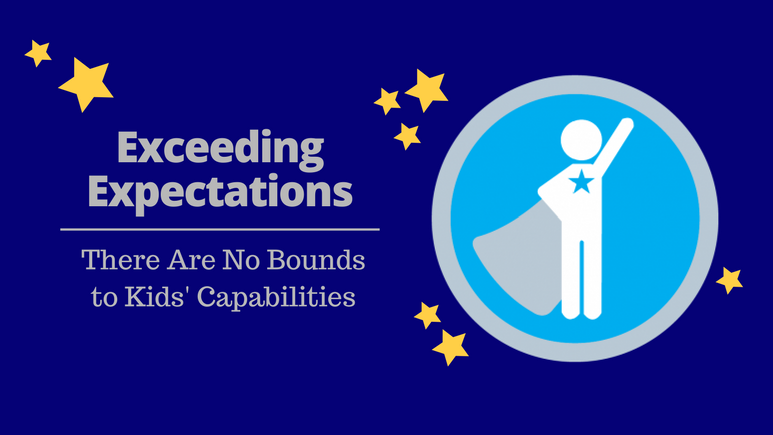
If you ask most people what is the purpose of K-12 education, you’ll get a variety of answers.
One of the most common answers is that we want to prepare students for college, the workplace, and to be successful adults.
While this is definitely true, I’ve always hated this answer for one reason.
I feel like it sells kids short on what they’re capable of right now.
The idea that schooling is mainly a preparatory phase for what comes next doesn’t acknowledge that our students are brilliant, creative, and talented people at this very moment.
Need proof? Below are some youngsters throughout history who’ve gone above and beyond what is expected of them to defy odds and accomplish some miraculous feats.
Remarkable Kid Accomplishments
Thomas Edison
Most people know Thomas Edison for his adult accomplishments, the invention of the light bulb being the most notable. Nonetheless, this was not the start of Edison’s innovative spirit. Edison worked as a boy selling vegetables and newspapers on the train. By the time he was 13, he had his own newspaper printing company. The hustle and skills that he learned working as a young boy set him up for further success.
Jordan Romero and Malavath Purna
These two teens are the youngest boy and girl to ever scale Mount Everest. American born Jordan Romero completed the climb in 2010 at the age of 13 years and 10 months. Indian born Malavath Purna complete the climb a few years later at an age of 13 years and 11 months. Both of these teens had to train tirelessly and rise above all odds to achieve this dangerous feat. Since 2014, authorities have raised the minimum age to climb Mount Everest to 18.
Jeremiah and Joshua West
Jeremiah and Joshua West founded a nonprofit organization, Champions of Change, when they were only 8 and 6 years old, respectively. Their mission is to inspire people of all ages to become change agents in their communities. Through organizing charity events, writing children’s books, and participating in public speaking gigs, these brothers are not only creating change themselves but inspiring others to do the same.
Laura Dekker
At the age of 16, the New Zealand born Dutch sailor Laura Dekker sought to take on a daring feat that only a minuscule handful of people will ever accomplish. She wanted to circumnavigate the world in a boat by herself. After initially being banned by the New Zealand government to attempt this journey, she finally was allowed to go and successfully completed the route in 518 days!
Joan of Arc and Malala Yousafzai
Both of these young women stood up to fight, albeit in very different historical contexts. Joan of Arc chopped off her hair, donned medieval armor, and took a commanding role in the French army at the age of 17. Malala Yousafzai is the youngest winner of the Nobel Peace Prize for her work fighting for girls’ rights to education in the face of the Taliban. In both cases, these fearless young ladies stood up for what they knew was right, regardless of what people around them thought.
How to Empower Your Children and Students
Sure, not every student is going to climb Mount Everest, but each and every one of your students has incredible capabilities. How can teachers foster a culture of achievement and high expectations in the classroom?
Read on for some tips.
Ask open-ended questions
In a traditional teacher/student relationship, we often assumed that the teacher is the holder of knowledge and the student is the one trying to access this knowledge. Sure adults might be more worldly about many things, but when it comes to solving problems or thinking outside the box, kids will often have us beat if we give them the chance. The more you can ask open-ended questions to students asking them to use their imaginations, the more you’ll foster their creative side.
Communicate High Expectations
Most people can identify a time when someone really believed in your abilities and how inspiring that feeling can be. Let kids know that you have high expectations for them because you know that they are capable of achieving them. Preface a challenging task with a message that you are confident your students will be able to complete this if they use their teamwork and perseverance. You wouldn’t give them hard work if you didn’t think they could do it.
Ask For Help
Students and all children LOVE to help adults. This is especially true if the task at hand involves doing something that said adult genuinely can’t do independently. As much as possible, set a context for academic tasks by asking assistance from your students. Maybe you want them to proofread a letter you’re writing to a congressman in English class, or want them to do the calculations to figure out exactly how much carpeting you need to buy for your odd shaped living room in math class.
Treat Them Like Adults
Obviously, there are some boundaries here, but the more you can treat students like adults, the more they’ll see value in themselves and their actions. Instead of threats when students aren’t on task, explain to them in a clear and calm voice why it upsets you as a teacher that they aren’t working. Part of this explanation should include that they aren’t living up to what you know they are capable of.
Once you internalize the idea that there is no limit to what kids can accomplish, your language and attitude changes should come naturally.



Wow!